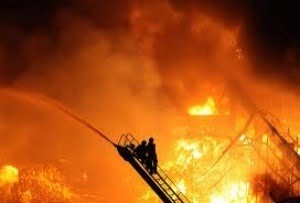
Most common causes of industrial fires
Actualizado a fecha: 5 September, 2019
An Industrial fire is a type of industrial disaster involving a conflagration which occurs in an industrial setting. As we saw in the last fire in a chemical plant in Spain, industrial fires sometimes occur together with explosions. They are most likely to occur in facilities where there is a lot of flammable material present. Such material can include petroleum, petroleum products such as petrochemicals, or natural gas. These are the leading causes of industrial fires:
– Electrical Fire Hazards: Defective wiring is a major cause of industrial fires. Watch out for worn extension cords, exposed wiring, and broken power tools or equipment.
– Flammable Liquids: Solvents, paint and paint thinners, gasoline, and alcohol-containing substances all ignite easily at the slightest spark—or even by static electricity. They should be stored in OSHA-compliant and approved safety containers in well-ventilated areas not near any heat source.
– Compressed Gases: Compressed flammable gases have flash points below room temperature, so even small leaks of these materials can ignite. Don’t expose cylinders to temperatures over 50 degrees C (122 degrees F). Don’t extinguish a flame involving a flammable gas until the source has been turned off—it can easily re-ignite.
– Hot Work: Welding and cutting operations generate heat, sparks, and slag. Make sure you wear fire-resistant protective clothing when welding or cutting. Follow the precautions listed on hot work permits.
– Smoking: Many companies have banned all smoking from the premises. If you are still allowed to smoke in designated areas, make sure that there are adequate ashtrays or butt cans and that smoking rules are posted and enforced.
– Housekeeping Practices: Sweep up dust, lint, sawdust, and scraps. Dispose of combustible waste—such as oily rags—in covered, airtight containers.
– Arson: Be aware of the possibilities of arson in your workplace. Arson has increased dramatically over the years, particularly at strike-bound plants or companies engaged in controversial activities.
You can check our fire protection constructive solutions to see what can you do in terms of security to avoid this kind of fires.
Land Mark Learning